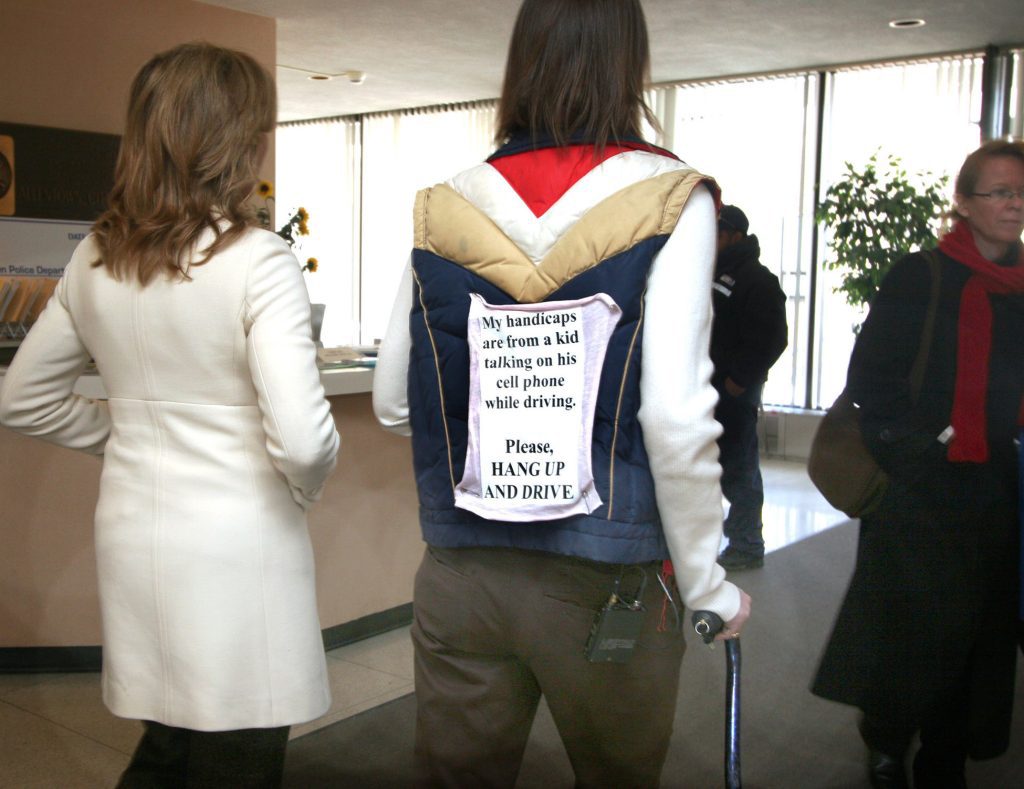In Pennsylvania, it's against the law to text while driving.
If a police officer catches you writing a message while in the driver’s seat, you will have to pay a $50 fine, and it will be considered a summary offense violation with related court fees.
However, using the internet, taking a photo, or watching a video while driving is not covered by the law. This makes it hard for police to enforce the law, and distracted driving continues to be a big problem in Pennsylvania. According to PennDOT, there were 80 deaths in distracted driving crashes in 2022, which was the highest number in the past ten years.
Senator Rosemary Brown, R-Monroe, said, “It’s very clear over the years that the law against texting while driving doesn’t work, because it’s very hard for law enforcement to know if someone is actually texting.”
There might be a change soon, as Senator Rosemary Brown has been working on a bill for 12 years that could soon be approved by the governor. Both the House and the Senate passed it this year. The Senate has to vote one more time to approve changes made by the House before it goes to Gov. Josh Shapiro’s desk. A spokesperson for Shapiro could not be reached for comment, but Brown said he has shown support for the bill in the past.
Brown’s bill would make any use of a phone while driving a primary offense subject to a $50 fine, plus court costs and other fees. Brown first introduced the bill in 2012 and has introduced it multiple times since then.
Jacy Good, an advocate against distracted driving, has been pushing for this change for a long time and thinks it is long overdue.
Jacy Good started advocating against distracted driving a decade ago after a tragic accident that took her parents’ lives and left her severely injured. After spending four months in the hospital, Good survived but now deals with ongoing physical and cognitive issues.
Good’s story is tragic, and she wishes it never happened. She hopes that by sharing her story, people can imagine the impact it has had on her life, and consider how they would cope if they were in her shoes.
Less than a year after the crash, Good started speaking out about distracted driving, sharing her story on the Oprah Winfrey Show, in a People Magazine article, and in many other media outlets. She has consistently called for a ban on all forms of phone use while driving.
Muhlenberg College graduate Jacy Good was injured in a 2008 Berks County crash that killed her parents when a teenage driver ran a red light. (Monica Cabrera / The Morning Call)

According to Brown, the bill has been in the works for over ten years, with changes and compromises being made, such as adjusting fines and requiring data collection.
Over the years, there have been various versions of the bill to accommodate different interests. Brown noted the increasing problem of distracted driving and cellphone use while driving, leading to more severe accidents.
The legislative Black caucus raised concerns about potential unequal enforcement based on race, resulting in a provision for collecting race-based data during traffic stops.
Police departments in cities and towns with over 5,000 residents must collect this data, which will then be made public annually and assessed for signs of racial bias.
State Rep. Donna Bullock from the Black caucus expressed the need for data to ensure public safety and hold police accountable.
In 2021, Bullock spoke to the Morning Call about these concerns. The bill has also undergone other changes, such as reducing the first-time offense fine from $300-$500 to $50 and implementing a 12-month warning period for drivers..
Despite these adjustments, the bill faced criticism, including from the hard-right Pennsylvania Freedom Caucus, who believed the race-based data collection would lead to discrimination against Caucasians.
Some House members, like Rep. Doyle Heffley, voiced concerns about the bill disadvantaging people with older cars that do not have hands-free capabilities.
Advocates acknowledge that no bill is perfect but hope that this one will effectively reduce distracted driving in Pennsylvania.
State Rep. Mike Schlossberg, a classmate of Good's, prioritized addressing distracted driving after being elected to Allentown City Council in 2010, leading to a fine for cellphone use while driving, which was later overturned by a county judge.
The ban was overturned a year later by Lehigh County Judge James T. Anthony, who found
the city did not have the jurisdiction on its own to outlaw hand-held device use within its borders. Despite the ordinance’s being struck down, Schlossberg still saw it as a win.
In Schlossberg's view, the overturning of the ordinance marked a defining moment in his career, as laws can change behavior for the better.
He told a story from that time — he remembered going to a local AT&T store to ask if they had any Bluetooth devices for sale, and a store worker told him they were sold out after the city law passed. He saw that as proof that the law had the power to encourage better behavior, no matter how it is eventually enforced.
Some studies also support this conclusion — a research by the Ohio Department of Transportation discovered an 8.6% decrease in distracted driving since that state’s ban took effect late last year.
Allentown in particular has struggled with a high number of traffic crashes — four pedestrian deaths, eight motorist deaths and 60 severe injuries from crashes in 2023 alone — and local leaders are investing money to address the issue. The city intends to reveal its plan to achieve “Vision Zero,” a label that shows a goal to achieve zero traffic-related fatalities by 2030, at a news conference next week.
The new law could be a crucial part of the city achieving that goal, according to city supporters.
“I think this is an important tool for law enforcement and cities to ensure our roads and streets are safe,” said state Rep. Josh Siegel, D-Lehigh, whose district includes most of Allentown.
Twelve years later, a hand-held ban is on the verge of becoming the law of the land in Pennsylvania. To Good, despite some of the bill’s perceived shortcomings — like a relatively light fine — it’s still a victory.
But it needs to be properly enforced, too. Brown said the Shapiro administration would be responsible for educating local police departments on the law change, and the 12-month grace period would give both officers and drivers time to become acclimated to the new law.
“It seems they’ve done a very good job, it’s an enforceable law and when the law can be enforced, it’s been proven time and time again it can reduce crashes and deaths,” Good said.
Reporter Lindsay Weber can be reached at [email protected].
Pennsylvania is behind the curve on this. All states surrounding Pennsylvania — from Ohio to New Jersey — have already made cellphone use while driving a primary offense.









